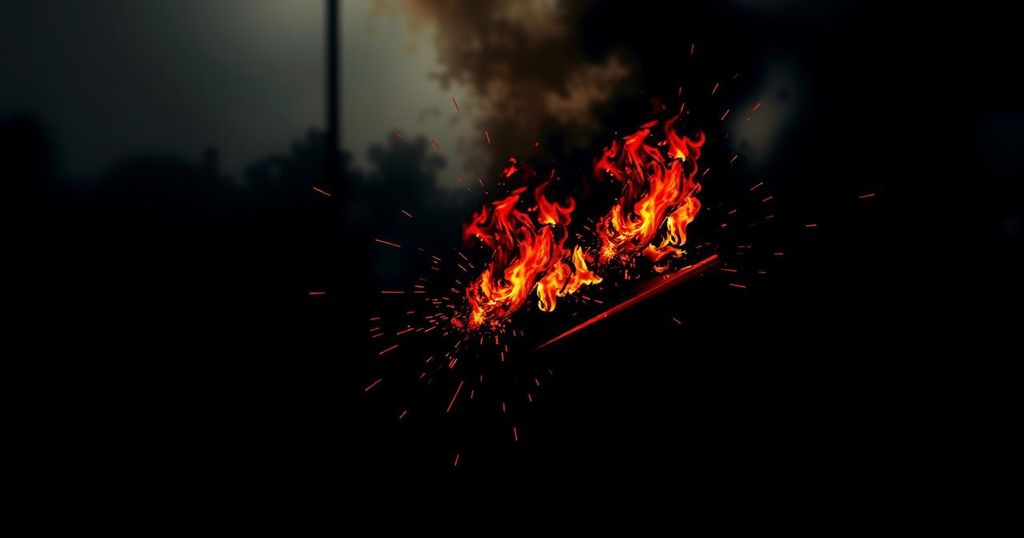Intensifying Repression of Opposition in Uganda and Zimbabwe: A Call for International Action
The political climates in Uganda and Zimbabwe are increasingly oppressive, with governments cracking down on opposition and human rights activists. Uganda’s Anti-Homosexuality Act and the detention of opposition leaders in Zimbabwe reveal systemic patterns of repression. The situations underscore a dire need for international accountability and a reevaluation of diplomatic policies prioritizing human rights over economic interests.
The political landscape in Uganda and Zimbabwe is increasingly alarming as governments engage in severe crackdowns on opposition figures and human rights advocates. In Uganda, the implementation of the 2023 Anti-Homosexuality Act has raised international concerns, establishing harsh penalties for homosexuality, including life imprisonment and potentially the death penalty under vague classifications. This legal framework not only targets individuals but also threatens public health and human rights efforts, with severe implications for those who advocate for LGBTQ+ rights. The Ugandan government’s response to international criticism, notably from the United States and the World Bank, has been dismissive, continuing to suppress dissent while reinforcing its grip on power, particularly as elections approach.
In Zimbabwe, a similar pattern emerges as the detention of opposition leaders highlights the government’s oppressive tactics. Recently, 35 opposition members, including interim leader Jameson Timba, were released after lengthy detentions following baseless charges of unlawful assembly. Despite their release, the legal system’s apparent manipulation mirrors the oppressive legacy of former President Robert Mugabe’s regime, raising concerns about the future of democratic practices under President Emmerson Mnangagwa.
Moreover, the abduction of Ugandan opposition leader Kiiza Besigye by intelligence agents while in Kenya underscores the complexities of regional politics and further demonstrates an escalating trend in authoritarian control. Observers are concerned about the implications of this incident for Kenya-Uganda diplomatic relations and the potential complicity of Kenyan authorities.
The situation is compounded by the growing influence of Russia in the region, which is reportedly stoking anti-LGBT sentiments and exploiting existing grievances against Western nations, thereby complicating the political climate. As pressure mounts on civil liberties, citizens and opposition leaders in both nations are increasingly subjected to surveillance, harassment, and violent reprisals when they exercise their democratic rights.
With elections approaching in both countries, the prospects for meaningful change appear bleak. Critics emphasize the need for international actors, particularly the European Union, to reevaluate their foreign policy priorities, advocating for a stronger emphasis on human rights over economic interests. Failure to do so not only endangers the populations in Uganda and Zimbabwe but could set a concerning precedent for the region’s political stability in the future.
In recent years, both Uganda and Zimbabwe have faced significant political turmoil characterized by government crackdowns on dissent. In Uganda, the passage of stringent laws against homosexuality, such as the Anti-Homosexuality Act, has exacerbated human rights violations and stifled opposition voices. The Ugandan government, led by President Yoweri Museveni, has a history of repressing political opposition with impunity, particularly as elections draw near. Zimbabwe, similarly, has a troubling history of political repression under various administrations, with ongoing patterns of detaining opposition figures and misusing the judicial system to maintain control. The political environment in both countries is marked by widespread fear, repression, and a declining space for civil liberties and democratic engagement.
The deteriorating political situations in Uganda and Zimbabwe require urgent attention from both regional and international actors. The continued crackdowns on opposition leaders and human rights activists are symptomatic of deeper systemic issues that threaten democracy and civil liberties. As elections loom, both nations must confront the impact of their authoritarian practices, while international bodies must prioritize human rights in their engagements, ensuring that economic interests do not overshadow fundamental democratic values. Immediate action is necessary to foster an environment where justice and accountability are upheld, providing citizens with a genuine opportunity for democratic expression and governance.
Original Source: evrimagaci.org




Post Comment